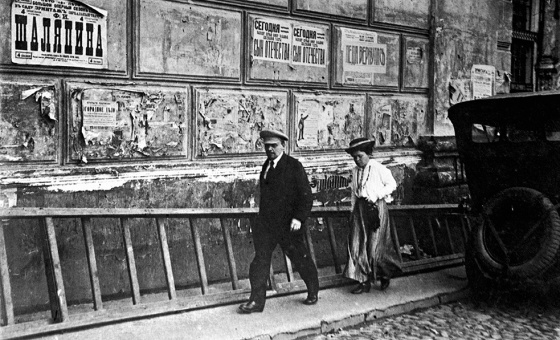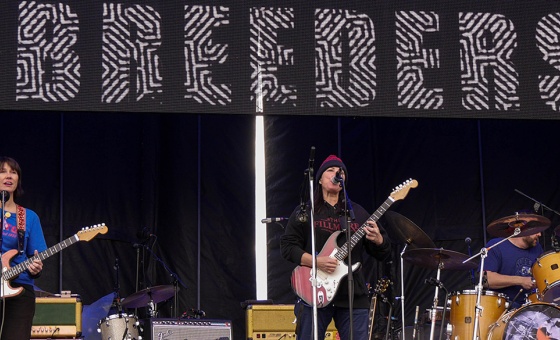This is the last article you can read this month
You can read more article this month
You can read more articles this month
Sorry your limit is up for this month
Reset on:
Please help support the Morning Star by subscribing here
THE Philippines recorded a total of around 13,800 confirmed cases of Covid-19, around 3,200 recoveries only and 863 deaths as of May 25.
Thousands are still fighting for their lives in government and private hospitals which are mostly poorly equipped to cope with this highly contagious disease.
With just over 1,000 units of respirators in the most affected areas of the country, only rich patients could have a higher chance of survival and recovery.
The reopening of some essential business and transport operations at the start of June was demanded by the capitalist class to restart their “business-as-usual” process of wealth accumulation and to end the government programmes of distributing some cash and food assistance for locked-down poor families.
But this reopening of business comes with the risk of a second wave of infections, particularly in the epidemic centres of Manila, Cebu and Davao City.
A research study prepared by scientists at the University of the Philippines’ Resilience Institute (UP-RI) shows that 65 per cent of essential jobs in the country have a high potential to spread Covid-19.
The study shows that 816 out of 987 job types in the Philippines are crucial to sustain the economy in the next six months, but 65 per cent of these 816 essential jobs require close regular interaction with people, which is risky.
Health workers comprise 13.8 per cent of the risky job category and the risk is heightened where personal protective equipment is insufficient.
Another 51.2 per cent are made up of workers from the food, agriculture, manufacturing and service sectors (a total of 505 high-risk job types).
Among these are construction workers, security guards, drivers and other low-paid manual workers in production processes where social distancing can hardly be practised.
A spike in the number of infections is also feared due to the repatriation of around 30,000 dismissed Filipino overseas workers from countries gravely affected by the pandemic (the Middle East, Europe and the US).
Of around 24,000 who arrived in the past month, around 600 of these have already tested positive for Covid-19 and are undergoing hospital treatment.
Over a dozen cruise ships at the anchorage area of the Manila Bay are serving as quarantine quarters for thousands of Filipino cruise ship crew who have lost their jobs, so as not to overwhelm government quarantine and isolation facilities in Manila.
Additionally, the World Health Organisation and the Philippine Medical Association raised doubts about the accuracy and effectiveness of the rapid antibody test (RAT), the common swab testing method in the Philippines.
The RAT certifications issued to those returning to work cannot really guarantee the “immunity” from the disease of the certificate holders.
The concern of the medical association stems also from the fact that one out of every five people infected with Covid-19 in the Philippines is a front-line medical worker.
With the death of many doctors, more hospitals are resorting to online “tele-medicine” services, with their doctors located in segregated hospital rooms outside the wards, thus leaving nurses and other hospital ward staffers at the most dangerous front line of patient care.
With the emergency situation still full of danger, President Rodrigo Duterte assured the public that the government response would be graft-free and transparent.
On May 18, he again pledged to jail those caught for corruption and renewed his promise to reward P30,000 (around £480 at the current rate of 62 Philippine pesos per pound sterling) to each person reporting corruption.
Indeed, some small-time village officials are now under investigation for anomalies in padding the payroll for monetary assistance and in the procurement and distribution of food packs, which are given to locked-down poor families.
But as usual, emergency situations are always convenient occasions for the big-time crooks in the government and private sector.
And Duterte does not have to look far. Opposition senators have pointed to the government’s Covid-19 testing package cost a remarkable £130 per test — a prime example of corruption.
This is clear from the following costing approved by the Philippine Health Insurance Corp, a government agency under the Department of Health (DOH): “screening” costs P509.06; “diagnostic work-up” costs P799.69; “specimen collection” costs P947.12; “specimen transport” another P451.14; and “polymerase chain reaction (PCR) testing” is P5,422.91 — making for a total of P8,150.
It is apparent that there is no need for “screening” and “diagnostic work-up” because testing only involves nasal swabbing, which should not even cost the P947.12 being charged for “specimen collection.”
Further, it is ridiculous to charge for “specimen transport” (or “courier service),” considering that patients are required to go to the laboratory to get tested.
Regarding the approved PCR testing cost, this includes P2,700 for the test kit ; P840 for the “extraction kit,” P200 for staff time (with eight staff members allegedly required to conduct each test); P549 for personal protective equipment ; P649 for “other supplies” and P494 for overhead costs.
Opposition senators have charged that all these individual costs are apparently overpriced. Further, it is clearly ridiculous to charge P549 for personal protective equipment for each test.
For some people to seize the opportunity for self-aggrandisement out of a crisis as big as the Covid-19 pandemic is the height of callousness and greed.
This was the finding of some senators regarding the questionable procurement by the DOH of the “King Fisher” testing equipment at P4million (£64,000) each, as some sectors have spent only P1.75-million (£28,000) for the same equipment bought directly from the Sunsure manufacturer in China.
Several senators gave different cost estimates for Covid-19 testing, based on commercially available test kits from China (which usually cost less than P1,500 each), showing that the total cost should not be more than P4,000 per test, even considering an overhead cost of P2,000.
They estimated that no less than P8billion (around £128 million) will be lost through the corrupt pricing scheme, considering that up to two million Filipinos are supposed to be tested.
However, it appears from the Philippine Health Insurance Corp’s records that P13-billion (£207 million) had already been released to accredited hospitals attending to Covid-19 patients, to fund the cost of testing at a price tag of P8,150 per test.
The fund release is a cash advance under their “interim reimbursement mechanism,” a “sweetheart deal” which is only subject to liquidation by submitting proof of purchase of test kits, personal protective equipment, supplies, etc.
Health Secretary Francisco Duque III immediately defended the Philippine Health Insurance Corp by saying that although it has earmarked P8,150 for each person tested in a DOH or private laboratory, the cost of the testing package that they would shoulder would actually range from P2,700 to P8,150.
He said that the Philippine Health Insurance Corp will pay only P2,700 if the testing is done by the DOH using a donated test kit.
If the test is done by a non-DOH laboratory using a donated test kit, the amount to be paid will only be P5,450 per test.
But why should the Philippine Health Insurance Corp have to pay the DOH for conducting tests, when both are government agencies getting public funds?
Further, how would anyone know if the test kit was donated or not?
Can one expect a private hospital laboratory (or even a DOH hospital laboratory) to honestly declare that the test kit used was donated?
The Philippine Health Insurance Corp is known for its past scams involving mutual payoffs under sweetheart deals with medical institutions for fictitious dialysis sessions and cataract surgeries, as well as other fictitious procedures on ghost patients.
In a privilege speech at the House of Representatives, Congresswoman Janette Garin, a former health secretary, revealed that a private company is cornering the importation of Natch-CS (a fully automated extraction instrument used for testing Covid-19) as well as MA-6000 tissue culture kits, by claiming to be the exclusive distributor of their manufacturers.
Even government agencies were “forced” to buy from this private company, instead of dealing directly with foreign manufacturers.
Garin also admonished the DOH for not buying PCR or swab-testing kits directly from foreign manufacturers in order to drive down the testing cost.
She said that the actual cost of the test kits (complete with reagents and consumables) procured directly from foreign manufacturers is only from P800 to P900 per complete set.
She complained about the hyperinflated PhilHealth-DOH cost computations for Covid-19 testing and called on Duterte to discipline his “children” in his official family.
This article first appeared in the June edition of Sulong! (Forward!) monthly newspaper of the Philippine Communist Party (PKP-1930).









